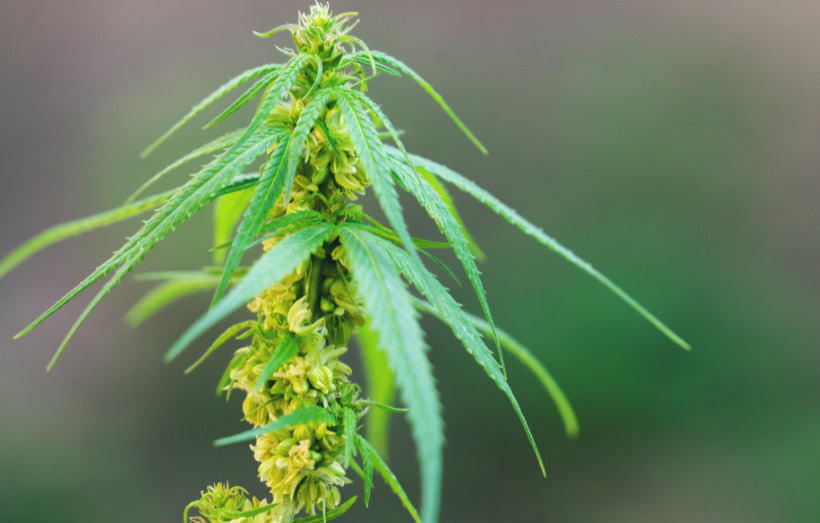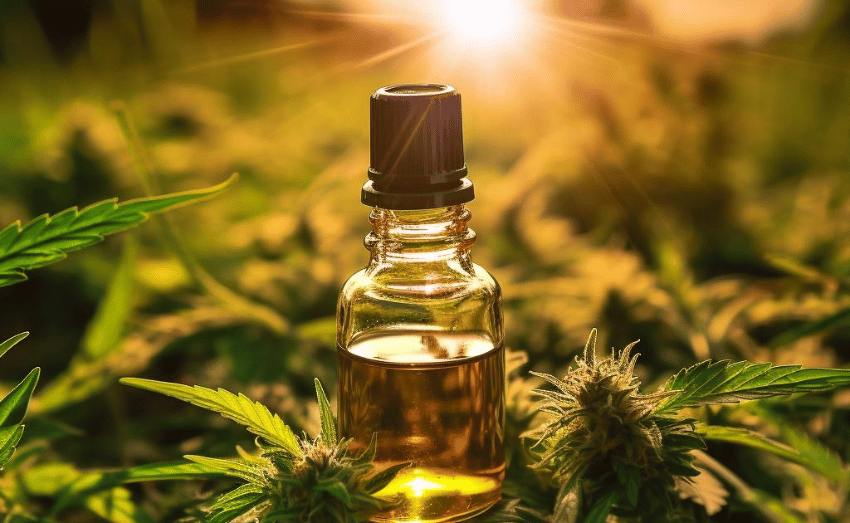Embarking on a weight loss journey? We’ve got a nutrient-packed companion for you – hemp seeds! If you’re scratching your head and thinking, “Hemp… what now?”, don’t worry. We’ve got all the answers tailored for beginners like you. Let’s dive into the world of hemp seeds and uncover their weight-loss magic!
What Are Hemp Seeds?
Hemp seeds come from the Cannabis sativa plant. Now, I know what you’re thinking – “Cannabis? Like marijuana?” Well, yes and no.
While both hemp and marijuana come from the same plant family, they are like distant cousins, with distinct characteristics.
The main difference is that hemp seeds contain only trace amounts of THC, the compound that gives marijuana its psychoactive properties. Simply put, eating hemp seeds won’t give you a “high” feeling.
Hemp seeds might be small but think of them as nature’s tiny treasure troves. When we say they’re technically a nut, it means that they have a similar consistency and rich, nutty flavor. That’s why they earned the nickname “hemp hearts.”
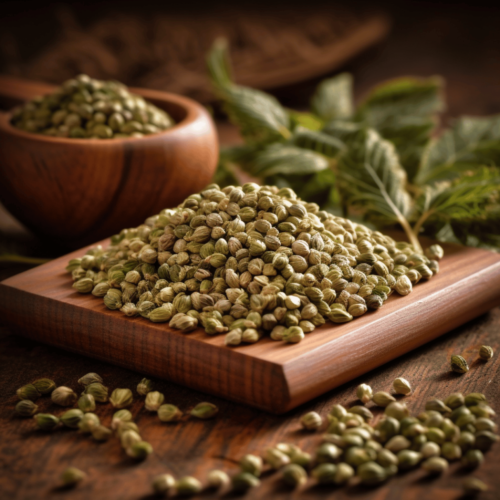
Why Are Hemp Seeds Great For Weight Loss?
Losing weight isn’t just about shedding pounds; it’s a holistic process that requires the right combination of diet, exercise, and lifestyle choices. While there are numerous superfoods out there that promise to aid in weight loss, hemp seeds stand out for their scientifically-backed benefits.
Let’s delve deeper into why hemp seeds can be your trusty allies in your weight loss journey.
- Protein Punch: A study published in the Journal of the American College of Nutrition found that diets high in protein can boost metabolism and fat burning. Hemp seeds are 25% protein, making them a great plant-based source.
- Dietary Fiber: According to the American Journal of Clinical Nutrition, high-fiber foods make you feel full longer and curb unnecessary snacking. Hemp seeds are loaded with fiber, helping you control your appetite.
- Balanced Fatty Acids: The Nutrition Journal reported that Omega-3 fatty acids, which hemp seeds are rich in, may assist in reducing body fat in overweight individuals.
Weight loss is a journey, and like all journeys, it requires the right tools and companions. Hemp seeds, with their impressive nutritional profile, can be one of your best companions. By integrating them into your daily diet, you’re not only taking a step towards weight loss but also overall health and well-being.
Remember, it’s not about losing weight fast but losing it right. Embrace hemp seeds and let them guide you in your healthful journey.

How Do I Incorporate Hemp Seeds Into My Diet?
We’ve all heard about superfoods, but how do we incorporate them into our daily meals without disrupting our eating habits? Hemp seeds, with their impressive nutritional profile, can easily be sneaked into your diet without any culinary acrobatics. Let’s break down the ways to enjoy these tiny wonders in a detailed manner:
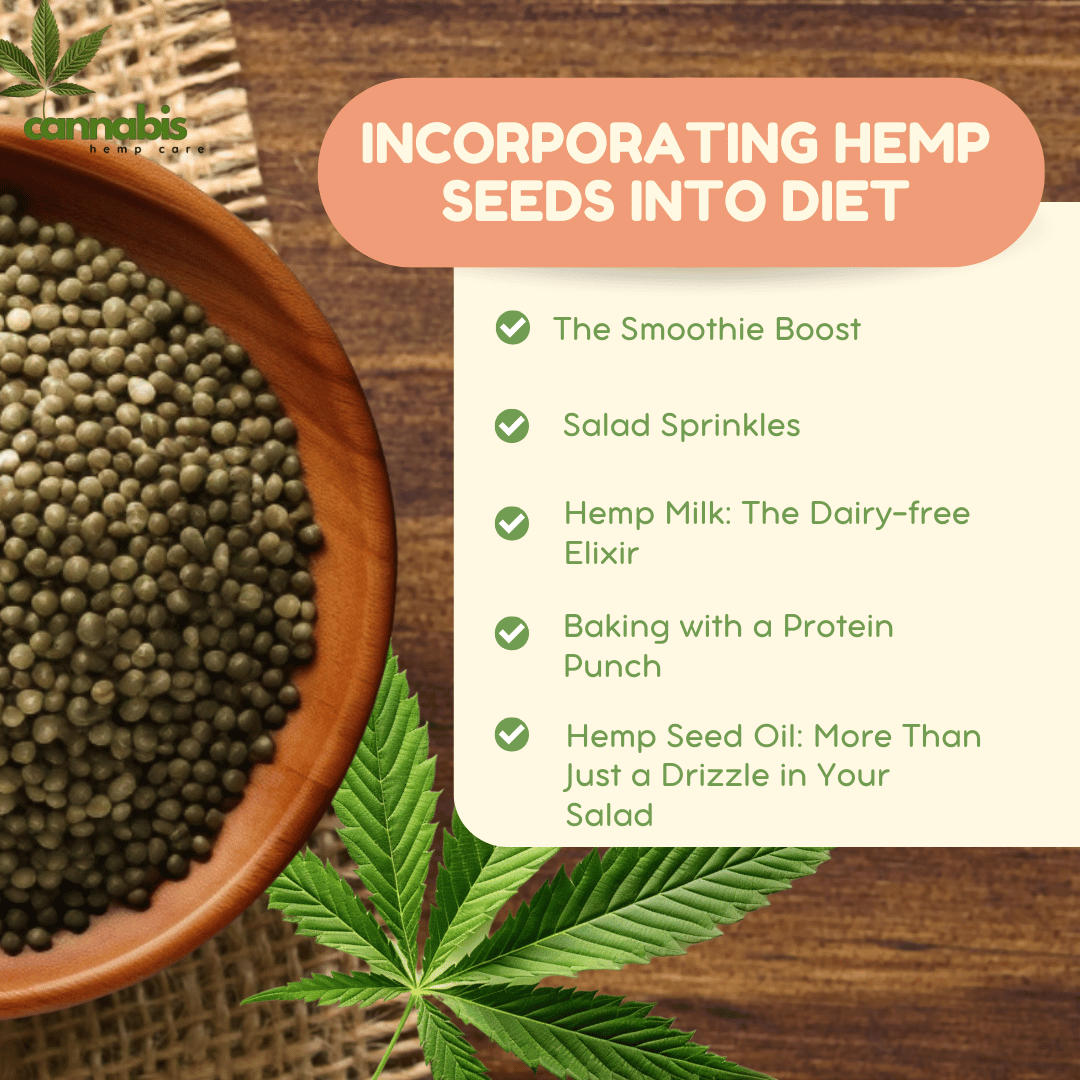
1. The Smoothie Boost
- Why it Works: Smoothies are a favorite go-to, especially for breakfast. They’re customizable, quick, and packed with nutrients. Adding hemp seeds enhances their protein content without altering the taste significantly.
- How to Do it: When blending your fruits, veggies, and liquid of choice (like almond milk or yogurt), just toss in a tablespoon or two of hemp seeds. Not only will this increase the smoothie’s thickness, making it feel more like a meal, but it’ll also provide an additional nutty flavor that compliments most fruit and veggie combos.
2. Salad Sprinkles
- Why it Works: Salads can sometimes feel a little bland or not filling enough. Hemp seeds can change that.
- How to Do it: After preparing your favorite salad, sprinkle a generous amount of hemp hearts (shelled hemp seeds) on top. Their slightly nutty taste gives salads an extra flavor dimension, and their texture provides a delightful crunch similar to sunflower seeds or croutons.
3. Hemp Milk: The Dairy-free Elixir
- Why it Works: Many are turning to plant-based milk alternatives due to lactose intolerance or dietary choices. Hemp milk offers a creamy texture similar to traditional milk but with the added benefits of hemp.
- How to Do it: Blend 1 cup of soaked hemp seeds with 3 to 4 cups of water. Strain the mixture using a nut milk bag or a fine sieve.
The result? A creamy, nutritious milk alternative! You can even add a touch of vanilla or sweetener of choice to enhance its flavor.
4. Baking with a Protein Punch
- Why it Works: Everyone enjoys baked goods. Infusing them with hemp seeds not only boosts their nutritional value but also introduces a distinct, nutty flavor.
- How to Do it: Next time you’re whipping up muffins, bread, or pancakes, mix hemp seeds into your batter. Start with a small amount, say ¼ cup for a standard recipe, and adjust based on your taste preferences.
5. Hemp Seed Oil: More Than Just a Drizzle
- Why it Works: Oils form the base of many dressings and dishes. Hemp seed oil is packed with beneficial omega fatty acids.
- How to Do it: Use hemp seed oil as you would olive oil or any other. Drizzle it over salads, use it as a base for your dressings, or even incorporate it into low-heat dishes. Remember, hemp seed oil has a low smoke point, so it’s best not to use it for high-temperature cooking.
Integrating hemp seeds into your diet isn’t just about embracing a trend; it’s about elevating the nutrient content of your meals. Their versatility makes them a dream ingredient for both the seasoned chef and the beginner cook.
Start with these suggestions, experiment based on your tastes, and soon enough, hemp seeds will become a staple in your culinary adventures!
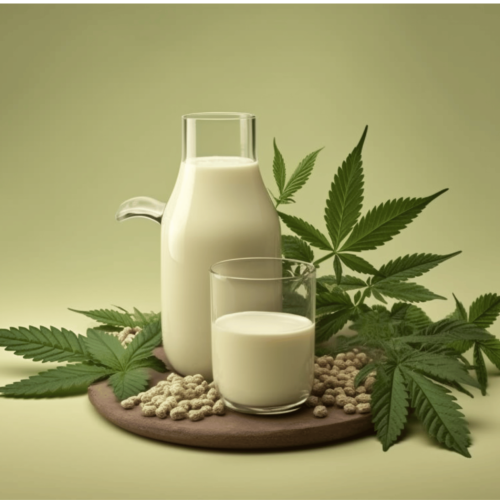
Any Side Effects I Should Know About?
While hemp seeds are gaining popularity for their myriad health benefits, it’s always smart to approach any new addition to your diet with a bit of caution. Let’s unpack potential concerns beginners might have when consuming hemp seeds:
1. Allergic Reactions: What’s the Deal?
Why it’s Important: Just as some people might have allergies to nuts, seeds, or other foods, it’s possible to be allergic to hemp. Allergic reactions to foods can range from mild symptoms like itching or hives to severe ones like difficulty breathing or anaphylaxis.
How to Navigate: If you know you have allergies but aren’t sure about hemp, introduce it slowly. Start by consuming a tiny amount and wait to see if there’s any adverse reaction. If there’s any sign of hives, itching, or swelling, stop the intake immediately and consult a doctor. For those with a history of severe allergies, it might be wise to first discuss with a healthcare provider.
2. Gastrointestinal Discomfort
Why it’s Important: As with any high-fiber food, consuming large amounts of hemp seeds in one go might lead to digestive discomfort like bloating, gas, or diarrhea, especially if your body isn’t used to it.
How to Navigate: Start with small portions. This gives your digestive system time to adjust to the added fiber. Gradually increase your intake as your body becomes accustomed.
3. Potential Interaction with Blood Thinning Medications
Why it’s Important: Hemp seeds are rich in omega-3 fatty acids. While these are beneficial for heart health, they can also have a blood-thinning effect. This could potentially interact with medications that have a similar function.
How to Navigate: If you’re on blood-thinning medications or have a bleeding disorder, consult with your doctor before incorporating hemp seeds into your diet. This ensures that you don’t unintentionally amplify the effects of your medication.
4. Caloric Content Awareness
Why it’s Important: Although hemp seeds are nutritious, they’re also calorie-dense because of their fat content. Overindulgence might not align with weight loss or maintenance goals.
How to Navigate: Moderation is key. Be conscious of serving sizes and integrate hemp seeds into a balanced diet.
Hemp seeds, like all foods, should be consumed in moderation and with mindfulness. Listen to your body and observe any changes. If in doubt, especially if taking medications or having existing health conditions, it’s always best to consult with a healthcare professional. Remember, while they’re a nutrient powerhouse, understanding potential side effects is crucial to enjoying their benefits fully.
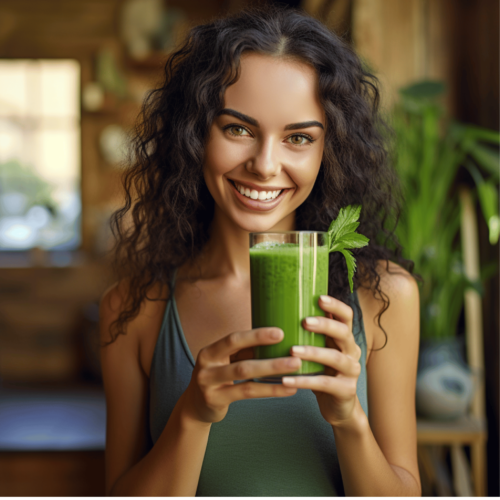
Conclusion
Hemp seeds are not just a trend; they’re a testament to nature’s power. Their rich profile can support weight loss and overall health. Remember, no single food will be the magic wand for weight loss; it’s always a combination of diet, exercise, and consistency. But with hemp seeds in your arsenal, you’re already on the right path.
FAQs
How many hemp seeds should you eat a day?
A typical serving size for hemp seeds is about 2 to 3 tablespoons (30 to 45 grams) per day for an average adult. This amount provides a healthy dose of essential fatty acids, protein, and other nutrients without adding excessive calories. However, individual needs may vary based on overall diet, health goals, and specific nutritional requirements.
Is it safe to eat hemp seeds daily?
Yes, it’s safe to eat hemp seeds daily as part of a balanced diet. They’re a nutritious source of protein, healthy fats, and fiber. However, as with any food, it’s essential to consume it in moderation and consider your overall dietary intake and health needs. If you have specific health concerns or are on medication, especially blood thinners, consult your healthcare provider before making significant changes to your hemp seed consumption.
Can I eat hemp seeds with water?
Absolutely! You can add hemp seeds to a glass of water and drink it. This might be an easy way to consume them, especially if you’re on the go. Alternatively, you can sprinkle them on salads, blend them in smoothies, or mix them into yogurt, oatmeal, or cereal.
Which is healthier, hemp seeds or chia seeds?
Both hemp seeds and chia seeds are healthful additions to your diet and offer a range of nutrients. They both provide protein, healthy fats, and fiber.
Should hemp seeds be refrigerated?
It’s a good practice to store hemp seeds in the refrigerator once you’ve opened the package. Because of their fat content, they can become rancid if left at room temperature for an extended period. Keeping them refrigerated helps maintain their freshness and nutrient quality. Store them in an airtight container to prevent moisture and contaminants.



































